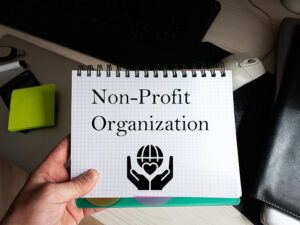IRS Delays $600 Form 1099-K Reporting Threshold
Kirsch CPA Group
Jan 03, 2024

Businesses and individuals concerned about the confusing 1099-K reporting requirements can breathe a sigh of relief: On November 21, 2023, the IRS announced that the deadline for the new $600 reporting threshold won’t go into effect for the 2023 tax year — and it’s expected to increase the threshold less than expected for 2024. Here’s what third-party settlement organizations and taxpayers need to know.
Changes to the Reporting Threshold
Third-party settlement organizations must report payments in a trade or business to the IRS and recipients. This is done on Form 1099-K, “Payment Card and Third-Party Network Transactions.” Examples of third-party settlement organizations include Venmo and Cash App, as well as gig economy facilitators, such as Uber, Lyft, Etsy and TaskRabbit.
The American Rescue Plan Act of 2021 lowered the minimum threshold to file Form 1099-K for a taxpayer from $20,000 of reportable payments made to the taxpayer and more than 200 transactions to $600 (the same threshold applicable to other Forms 1099) starting in 2022. In late 2022, the IRS temporarily delayed the reduced threshold for the 2022 tax year.
Following additional feedback from taxpayers, tax professionals and payment processors, it’s been delayed again for 2023, and the IRS is planning for a threshold of $5,000 for 2024. This will give taxpayers more time to prepare their systems and procedures for when the $600 1099-K threshold is scheduled to go into effect in 2025.
“Taking this phased-in approach is the right thing to do for the purposes of tax administration, and it prevents unnecessary confusion as we continue to look at changes to the Form 1040. It’s clear that an additional delay for tax year 2023 will avoid problems for taxpayers, tax professionals and others in this area,” said IRS Commissioner Danny Werfel.
Looking Ahead
The lower threshold for filing 1099-K forms will mean many participants in the gig economy will receive these forms for the first time. The IRS estimates that the reduced threshold, if it had gone into effect in 2023, would have resulted in the distribution of 44 million 1099-Ks sent to many taxpayers who wouldn’t expect one and might not have a tax obligation. This could have caused significant confusion among individuals and businesses.
Important: The 1099-K reporting requirements don’t apply to personal transactions, such as birthday or holiday gifts, sharing the cost of a car ride or meal, or paying a family member or another person for a household bill. These payments aren’t taxable and don’t require 1099-Ks. However, the sale of goods and services, including selling used personal items — such as clothing, furniture and other household items — could generate a Form 1099-K for many people, even if the seller doesn’t have a tax liability from those sales.
Members of Congress have introduced bills to raise the threshold back to $20,000 and 200 transactions, but there’s no guarantee that they’ll pass. In addition, taxpayers should generally be reporting income from their side employment engagements, whether it’s reported to the IRS or not. For example, freelancers who make money selling products on Etsy or driving for Uber should have been paying taxes all along. However, Congress and the IRS have said this responsibility is often ignored. In some cases, taxpayers may not even be aware that income from these sources is taxable.
In the meantime, businesses should prepare in 2024 to minimize the tax consequences of the gross amount of Form 1099-K reportable payments. And taxpayers should review gig and other reportable activities to ensure payments are recorded accurately. Payments received in a trade or business should be reported in full so that workers can withhold and pay taxes accordingly. If you receive income from certain activities, you may want to increase your tax withholding or, if necessary, make estimated tax payments or larger payments to avoid penalties.
In addition, taxpayers who haven’t been reporting all their income from gig work may not have been documenting expenses that result in deductions. It’s important to start doing so now to minimize the taxable income recognized due to the gross receipts reported on Form 1099-K. The IRS is likely to take the position that all of a taxpayer’s gross receipts reported on Form 1099-K are income and won’t allow deductions unless the taxpayer substantiates them. Deductions will vary based on the nature of the taxpayer’s work.
For More Information
The expanded 1099-K reporting requirement is complex and will affect many businesses and individuals. “The IRS will use this additional time to continue carefully crafting a way forward to minimize burden,” said Commissioner Werfel.
Contact us to learn more about Form 1099-K responsibilities
© Copyright 2024. All rights reserved.
More Resources

About The Author
Kirsch CPA Group is a full service CPA and business advisory firm helping businesses and organizations with accounting,…
Sign Up for Email Updates
Tags
Accounting & Financial News

Update on the First-Year Depreciation Tax Rules for Businesses
The One Big Beautiful Bill Act (OBBBA) included favorable changes to the federal income…

Looking to Boost the Profitability of Your Aftermarket Services? Consider Using Agentic AI
For many manufacturers, aftermarket services increasingly account for a significant share of profits, sometimes exceeding those from…

Enterprise Risk Management Built for Nonprofits
Nonprofit leaders might assume that enterprise risk management (ERM) is something only large, complex organizations need (or…


